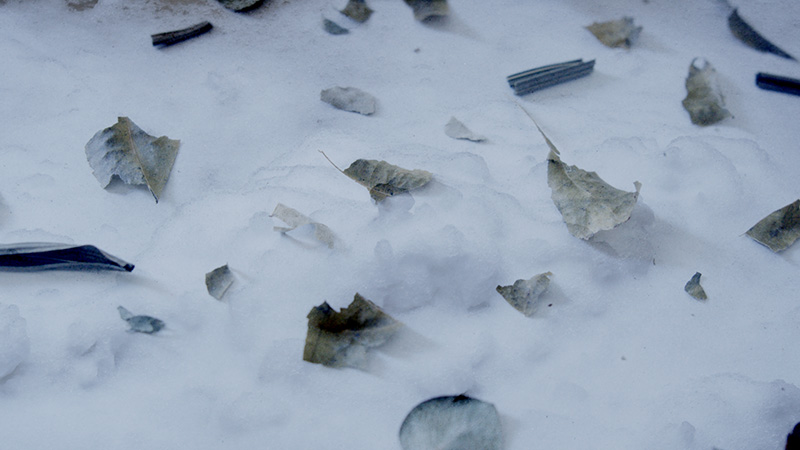My sister left Father earlier than I, but even when I did emerge from the cold of my parents’ house into the cold of the world, I was not quite fledged. I ran astray, got myself stuck, became a plaything, and fell; so far, in fact, that I nearly married. Today I drift on an ice floe, getting farther and farther from the shore that looms flat and joyless in the distance and never recedes from view. The silence around me is stretched taut with fear, blown up like a gigantic cloud.
Every day I walk with my dog, who limps in exactly the same way I do (I know what a ridiculous sight we make) through the neighborhood; when I stop, the animal also interrupts its pace and looks up at me. It was on one of these walks that I became a poet: on the side of the street stood a car that the frost must have wanted to make invisible, because it seemed to be wrapped in thin, white tissue paper. The sky, draped between the white rooftops, was gray. When I had almost reached the car, I saw that a child’s finger had tried to bring it out of hiding with letters, with a word, but had transformed it: its purpose as a car, already called into question by its white disguise, was taken away for good this time. Something was written on the hood, a word that aroused my interest; walking by closely, I deciphered: RAGE. I was shocked, strangely agitated, as if the naked face of a white-veiled bride were telling me something, as if I could read a message in her expression that had nothing to do with her being a bride. Since that moment I have wondered whether words might create a new world over the great emptiness, over the chasm into which my life has fallen. I now write words day and night, paint with their sound the floods of heaven that wash a mad fish past my window; I build towers and bridges, let the sun sweep the shadows out of the depths with its glinting broom, and shake my head when the wind I am describing reads old newspapers in a corner like a vagabond; hastily, with laughable curiosity, it turns the pages.

